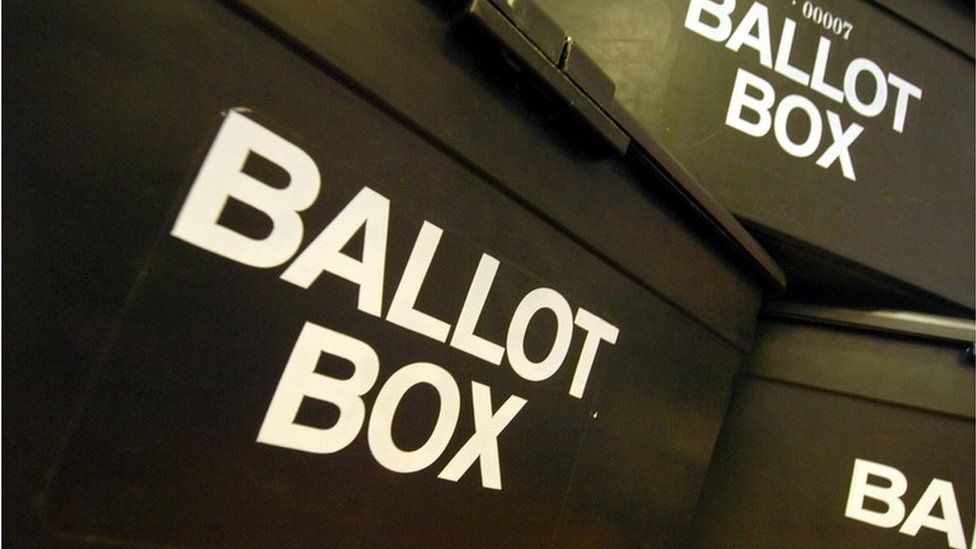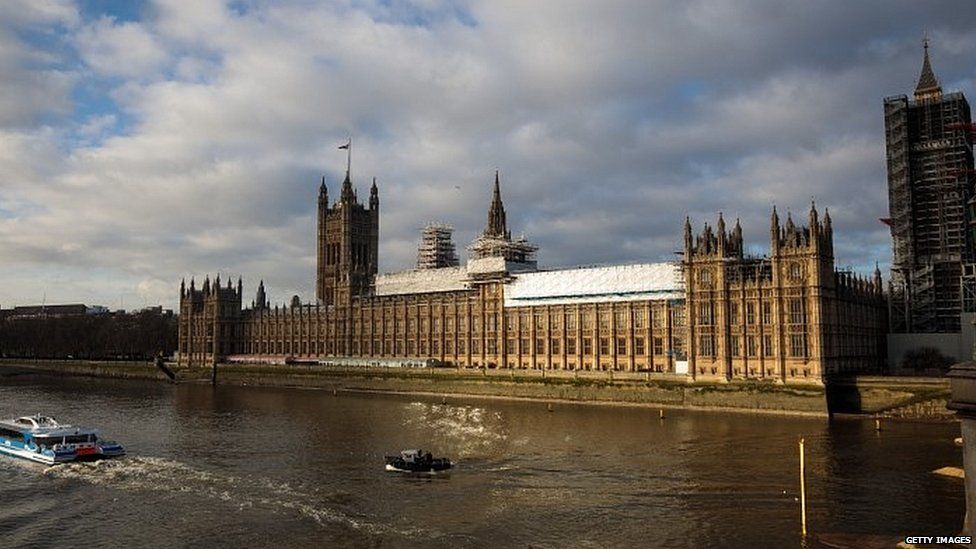Wales and Scotland lose out and details of a major revamp of England’s constituencies is unveiled.

Parts of the North of England and the Midlands will lose parliamentary seats while areas in the South gain under proposals for a shake-up of England’s electoral map in 2023.
The Boundary Commission for England says the aim is to make Parliament fairer by giving each MP a roughly similar number of voters.
It means redrawing and renaming some seats.
Scotland and Wales will see their total cut – while England gains 10 MPs.
The task of reconfiguring parliamentary constituencies is being carried out by independent commissions in each UK nation who will report separately, with the plans for England the first to be published.
The proposals suggest the first major overhaul of seat boundaries in England since 2010, with just under 10% of existing constituencies remaining unchanged.
Unlike previous reviews, the total number of seats in the House of Commons will stay at 650 but population changes mean England is set to have 543 MPs, Wales 32 and Scotland 57 – that is an extra 10 for England, with Wales losing eight and Scotland’s count cut by two.

image copyrightGetty Images
It comes after plans by the former conservative prime minister, David Cameron, to cut 50 seats were dropped by the government in March 2020 because of the “Brexit workload”.
The review is designed to end the discrepancies in the current system with some MPs having only 50,000 constituents and others having double that.
Seats will be redrawn so they have, by law, between 69,724 and 77,062 registered voters each; with some island constituencies, such as the Isle of Wight and Anglesey, being given special dispensation to be outside these requirements.
Population changes mean that, in England, the North East, the North West and the West Midlands will lose two seats each, while London gains two, the South West gets three extra and the South East is up seven.
A seat straddling Devon and Cornwall has been avoided but the Commission said it had “not always been possible to allocate whole numbers of constituencies to individual counties” or to avoid crossing boundaries and that “significant change” was necessary in Avon, Somerset and Devon.
Likewise in London, 31 constituencies will cut across borough boundaries.
Among constituencies affected are Sir Keir’s Holborn and St Pancras constituency, which could be renamed Kentish Town and Bloomsbury to reflect the changes; while Chancellor Rishi Sunak’s North Yorkshire seat could see alterations.
Tory MP for Lichfield in Staffordshire, Michael Fabricant, says the changes show “no knowledge” of his constituency.
“It divides Lichfield Trent Valley station in two and cuts off the eastern edge of Lichfield itself. Frankly, it’s a nonsense,” he said.
He added: “It bears all the hallmarks of boundaries drawn in the 19th and 20th centuries by Whitehall mapmakers in days of empire without any knowledge or care of the regions and people concerned.”
But Boundary Commission Secretary Tim Bowden stressed that while the proposals mark the first chance people will have to see what the new parliamentary map could look like, these are just “initial thoughts”.
He said the Commission wanted to hear the views of the public to “ensure that we get the new boundaries for parliamentary constituencies right”.

By Sean Curran, BBC parliamentary correspondent
If these proposals sound familiar that’s because it’s taken years to redraw the electoral map.
A lot has happened in British politics since the then prime minister, David Cameron, asked the independent boundary commissions to draw up plans for a smaller House of Commons made up of 600 seats all with roughly the same number of voters.
For years Conservatives had complained that the way the electoral map was drawn up gave their political opponents an unfair advantage. They argued that Labour seats tended to have fewer voters than Tory areas.
Labour responded by accusing the coalition of gerrymandering.
The changes were never introduced because Nick Clegg pulled the plug on the proposals after a rebellion by Conservative MPs killed off plans to reform the House of Lords.
But the plans to get rid of 50 MPs never went away and nor did the arguments.
It was probably always going to be a challenge to get MPs to vote themselves out of a job and Theresa May didn’t have enough support to get the plans through parliament.
Boris Johnson’s government has dropped the idea of cutting the number of MPs which might take some of the sting out of the forthcoming changes but every shake up of the boundaries produces winners and losers.
Some MPs will find themselves with safer seats, others will see their seats disappear altogether. There will be some gloomy and disappointed politicians at Westminster today, but this is only the start of a long consultation and this is unlikely to be the final picture.

The initial proposals will now be subject to consultations and revisions.
This first one will run for eight weeks before closing on 2 August.
A second consultation with public hearings will then get under way in spring 2022, followed by a final four-week consultation on revised plans in autumn 2022.
Final recommendations are due by 1 July 2023, after which the government has four months to implement the plans.
The changes will only come into effect in late 2023, which could be be too late for the next election if Boris Johnson decides to call it early.
The Dissolution and Calling of Parliament Bill brought forward in the Queen’s Speech would make it possible for the prime minister to call an election before 2024, when one is next due under the current rules.
If that were to happen before the new boundaries are in place, the election would be fought on the old boundaries.
Some polling experts have suggested the review could hand more seats to the Tories.
But Martin Baxter, founder of Electoral Calculus, said it was likely to be a mixed bag.
“People have been moving from Wales and the North of England down to the South, which means fewer seats in the North and more seats in the South.
“That helps the Conservatives overall, but not as much as it might have done since they now hold some ‘red wall’ seats themselves which might disappear, and there will also be more seats in Labour-friendly areas such as London.”
But he said “the net change will be fairly modest, and would be easily dwarfed by a change in public opinion by a percent or two”.
“The next election will ultimately be decided by the views of the British people rather than by the precise shape of all the constituency boundaries.”
The new review for England is estimated to cost £2.5m.
Public feedback to the initial plans set out in the 2018 review changed 50% of the initial plans.